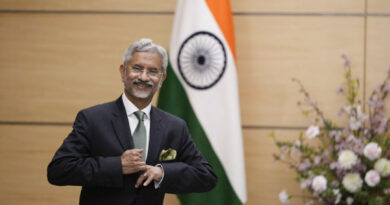Debate Over Debt Brake Policy Ignited by Germany’s Economic Troubles
The country is facing significant challenges, such as the loss of affordable Russian gas, historic car plant closures, and tough competition from inexpensive Chinese electric vehicles.
Germany, known for its skilled labor force and high-end exports as Europe’s largest economy, is struggling with these obstacles, leading to renewed discussions about its constitutionally enshrined debt brake.
The nation, currently in its second year of economic decline, is grappling with the impact of losing access to affordable Russian gas, the closure of longstanding Volkswagen plants, and competition from lower-priced Chinese electric vehicles.
This economic turmoil has been exacerbated by the collapse of the ruling coalition in November, prompting unscheduled elections set for Feb. 23, 2025.
Analysts warn that a combination of energy crises, political instability, and dwindling competitiveness threatens Germany’s longstanding position as a key industrial force in the EU.
Concerns over Germany’s constitutionally mandated debt brake have resurfaced in light of these challenges.
Recently, Merkel suggested dropping the debt brake citing more severe global challenges, especially since the Russian invasion of Ukraine and the climate crisis.
Pointing out the constraints of the debt brake, which caps the federal government’s structural net borrowing at 0.35 percent of GDP and restricts the 16 federal states from running structural deficits, Merkel underlined the need to adapt to the evolving economic and political environment.
Following Germany’s substantial borrowing during the COVID-19 lockdown, suspending the debt brake, concerns have been raised about the future economic policies and spending strategies.
Political analyst Richard Schenk highlighted the challenges facing Germany, including a decline in industrial production since 2019, energy transition hurdles, and its struggling automobile manufacturing sector.
‘Very Toxic Mix’
Schenk attributed Germany’s economic woes to a combination of factors, such as rising energy costs due to its transition towards renewable sources and increased CO2 emission regulations affecting the automotive industry.
The country’s efforts to shift to green technologies have been hindered by Chinese dominance in electric vehicle production, creating a challenging economic landscape for Germany.

Former German Chancellor Angela Merkel participates in a book talk with former U.S. President Barack Obama at The Anthem in Washington on Dec. 2, 2024. Obama and Merkel discussed her memoir “Freedom” as well as world politics and the history the leaders have witnessed. Kevin Dietsch/Getty Images
As Germany grapples with these challenges, the future of its economy remains uncertain, with questions looming over its ability to maintain its industrial prowess and economic stability.
Germany’s struggle to adapt to the changing global economic landscape underscores the need for proactive measures to address its structural and competitive issues.





